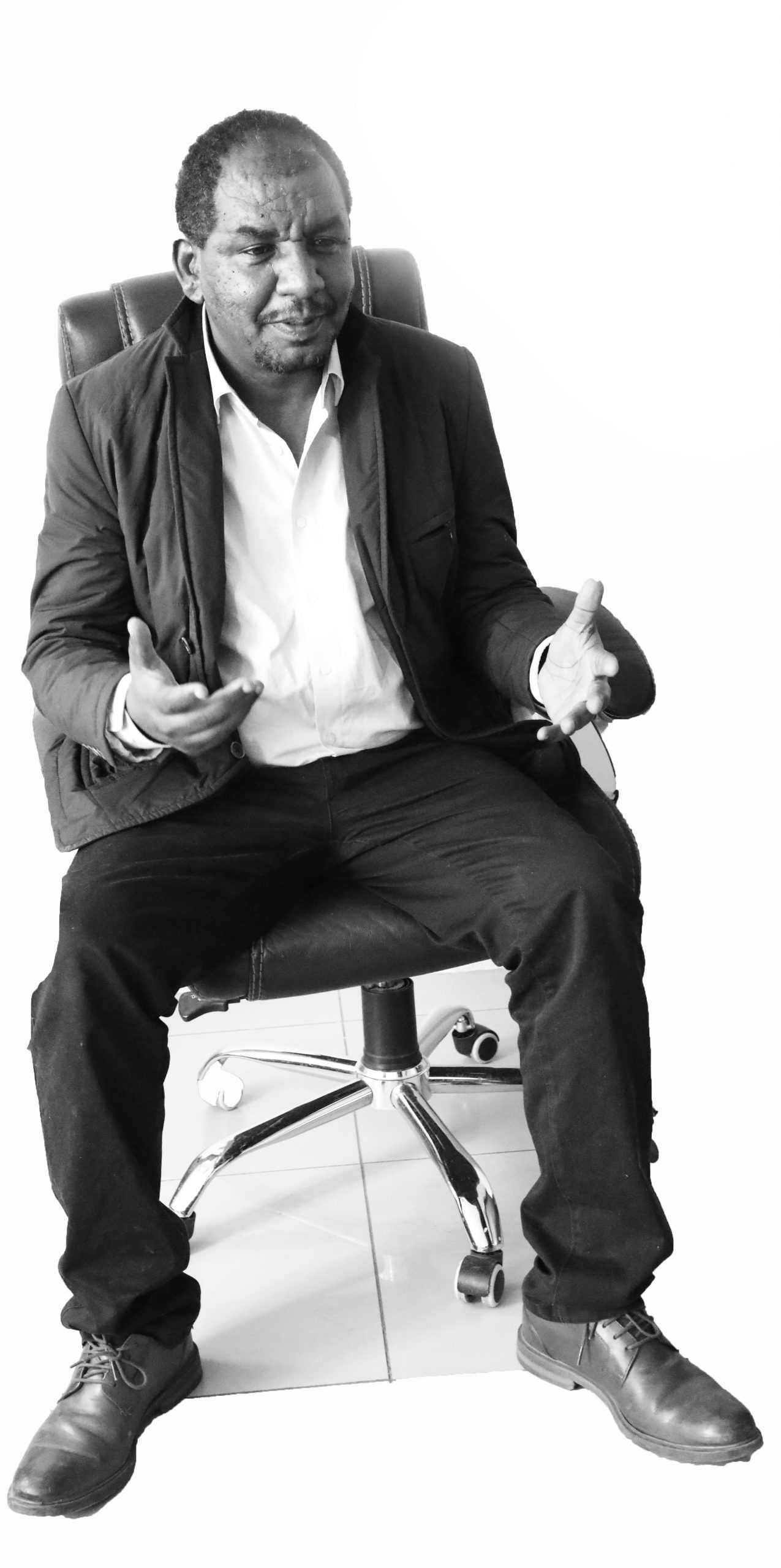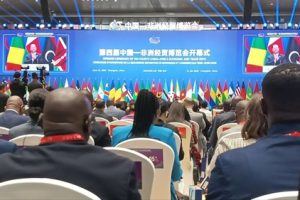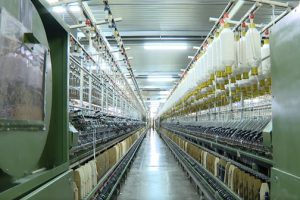
Samuel Hailu, is the founder, owner and Managing Director of TS Environment Technology. He has over 20 years of experience in the extractive industry. Samuel specialized in environmental and social impact studies, stakeholders engagement and consultation, environmental auditing and due diligence, environment system (ISO 14001) and procedures reclamation and rehabilitation program. The Ethiopian Herald made a short stay with him and raised a range of issues concerning environment and sustainability. The whole story is presented as follows.
Herald: What is your view in relation to environmental issues in Ethiopia?
Samuel Hailu: Environment is a global issue and it has to be considered right from the beginning. Every developer has to be considering the three aspects of philosophy: economic value -where every developer focuses, environment value- the natural resource and the social environment as well.
The social and natural environment is the foundation for investment. Thus, when investors are looking at the economic value, their base is environmental and social values. If they don’t look at the two critical components of sustainability, their focus is on gaining economic benefit which is perilous to the environment.
As they are the sources of an economy, if you damage these two foundations (the environment and society), sustainability will not be visible. That is what has happened in this country for the past many years.
Herald: Are Ethiopian businesses sustainable? If not, why
Samuel Hailu: – Our organization, has been trying to understand why sustainability is a problem for our country. Why our investors do not stay in their business for long? Many investors are not able to operate for more than 30 years. Why the lifetime of investors is short? The study we made depicts that Ethiopian businesses and investors lag behind in applying the concept of sustainability.
In other words, if everyone is focused on the economic values but ignore the social value; the impact will create instability both on the social and environmental aspects. As a result, companies would not be able to earn a sustainable income and hence gradually they will be forced to shut down. In our history, Ethiopian Airlines is among the few companies that have been operating for long. Most of the companies established the same time either vanished or experienced a change in ownership. By and large, sustainability is a critical component.
Herald- Thus what kind of care should investors give in engaging in businesses and development activities?
Samuel Hailu: – There is a philosophy
that says we need to start looking at the environment from different dimensions. We have got to put every being in mind. And nature has two big components – the mental power and environment power.
The sustainability aspect implies how we use mental power to develop the environment. If your mental power is very strong, you can understand what is in the environment and how to manage it. If this is so, economic development, sustainability and social responsibility can come together. Here, we can get a philosophy which holds six roots.
One is, understand ourselves- how to use our imaginative power and mental power to visualize the environment and to understand what is within the environment as well as to handle or process it.
The second is, as we have a certain lifetime, we are here to leave something behind for the best of next generation. As we are not here to live forever, we should think about the next generation. Here comes the sustainability issue. Leaving something behind for the good of the next generation must be the core component of the philosophy in the business environment. If we consume whatever we have to satisfy the current need, this would have devastating consequences.
The third is partnership. When we come up together to leave something good for the next generation, we will build a very strong linkage among ourselves. And when the powers of many people come together, the result will be very positive.
The forth is, we need admiration. When one individual do something good, we have to appreciate him/her for it. Something has happened because somebody has made it happen. Thus, we have to look it from the positive side; we have to give feedback and unreserved support.
The fifth is, we look at the law of negation differently. Stability is the balance between positive and negative forces. For me, there is no negative and positive; what matters is a balance between two phenomena. This is very imperative. There is a day and night, which one do you think is negative? Is it day or night? If you understand the environmen
well, it is stable because stability comes when two opposing forces come together. In order to stay stable, there must be an equal opposing force from different directions. So, the opposition is not a negation, it is rather a complement. One is the cause for the other to remain stable or in a balance.
For instance, water is a combination of oxygen and hydrogen. As we learnt in chemistry, hydrogen is a negative substance whereas oxygen is positive. The complement of the two creates water. The same thing has happened in the environment. When two opposing forces come at equilibrium, they create stability.
The sixth philosophy is sustainability. Until today, we have been operating in a linear process-flow system. For instance, a given company processes the resource in order to gain a product and waste. That is a linear flow in every dimension. As the resource is scarce, it ends up somewhere. Thus, we have to use the resource at hand properly. We have to use the biological ecosystem- which is a closed system.
In the biological ecosystem, there is no waste. Everything recycles itself. Everything maintains the equilibrium. So, the business environment has to think about how it can make the business stable within a closed system, so that, nothing will be wasted, be it time, energy and resource.
Herald: Could you tell us the methods your organization used so far to introduce
the concept of sustainability to the public at large?
We have social work program named Neqitenal. In this sustainability movement program different stakeholders are participating. The first target of the program is young student. Currently, we have been working together with ten schools to raise awareness of the society towards introducing sustainability concept in their day to day activity. Resource optimization, environment protection and wastage minimization are some of the areas that are given prior priority.
Herald: There are two groups that raise contradictory/extreme views about development and the environment. There are those whose entire focus is on development. On the other hand, environmentalists disparage development activities? What is your view on this?
Samuel Hailu:: It is a polarized issue. The one focuses on the development, the other on the environment. Indeed, everyone needs development. But, during the industrial revolution for instance, while everyone was focusing on industrial development, it brought a lot of damage and caused diseases and pollution. The ultimate goal of development is to improve the livelihood of
the society. But development is not the sole building block for progress; of course, it fulfills the needs and interests of the people.
For me, we need development to make a better society. Indeed, developers focused only on the bottom point which is financial return whatever the cost on the environment might be. This has brought great damage to the environment. Hence, we have to also think of sustainability not only in terms of the environment but also in society.
For instance, in our country, our government has been engaged in mega infrastructure developments to make societal aspirations such as road network and health service etc a reality. But, what is missed is the society. The development has created a lot of displacement here and there which resulted in political chaos. The development has to come but it has to ensure the direct benefit of the current and forthcoming generation. With this, it is possible to ensure sustainability.
Herald: There has been environment protection effort in Ethiopia. But why the effort is not effective?
Samuel Hailu: There are a couple of reasons for this. One is the government has limited capacity. Of course, we have
got environment impact assessment and pollution control proclamations enacted in 2002. In general terms, these are very good proclamation to support development endeavours. However, the rapid development strategy which was issued before ten years has some gaps in ensuring sustainability. The then officials were highly focused on ensuring rapid economic development. But, when they tried to bring quick development, as the bureaucratic procedures took time and there was reluctance in fully implementing legal frameworks meant to protect the environment. As a result, many projects were started without environmental documentations.
Even if some projects have gone through the environmental assessment process, the processes did not pass through all the required procedures. Even if many projects have got environment assessment report with good mitigation measure, they end up in a shelf. Finally, projects commenced without reviewing the environmental aspect. So, there has been a big gap in the regulatory bodies. Investors don’t want to be responsible for the damage occur on the environment due to their activities.
One of the challenges in this regard is the absence of strong institutions. The other
hindrance is environmentalists. We are not properly designed tools of environmental procedures and systems to produce an effective document. As a result, the impact is reflected in the community or in the environment.
The third is the developers/companies in Ethiopia. They are not concerned about the environment. Globally, companies are becoming very critical on the matter. Even before they started doing anything and put their footprint, they want to know what their liability is and what cost would they incur if something went wrong. For an Ethiopian developer, they need only the permit. So they do not care about how much it costs? What is their liability? They have got different ways of looking into these issues.
One thing that needs to be considered here is developers have to review the environment carefully if they want to make the business sustainable. They don’t have to abuse the state’s capacity limitation to make money. Even though the country does not have proper tools, they will have to be ready to be liable for the damage they cause on the environment in the future.
The government has capacity limitations to monitor, inspect and enforce actions on those who abuse environment procedures and systems as an advantage to make business. Developers have to look into the environment from different perspectives in order to avoid liability today and tomorrow.
The environment and society have to be protected in order to achieve our ultimate goal that is development. Thus, we have to able to balance these three.
Without a doubt, this country has hope in terms of development and environmental protection. To maintain our hope, the government has to work with all the pertinent stakeholders, particularly environmental organizations and businesses. Parallel to this, awareness-raising tasks should be expanded.
The Ethiopian Herald May 7/2020
BY GIRMACHEW GASHEW




